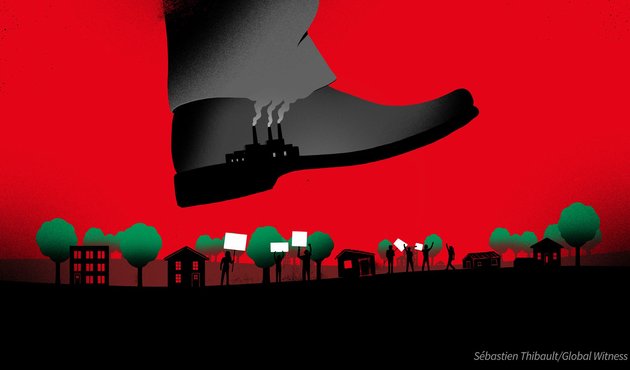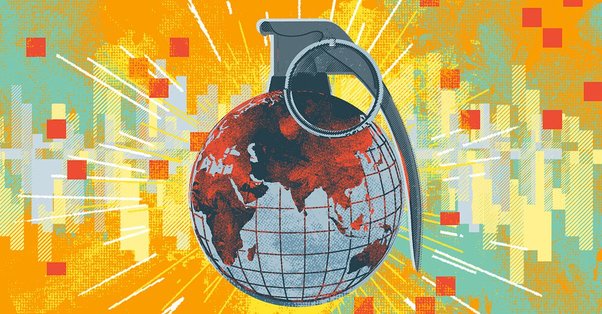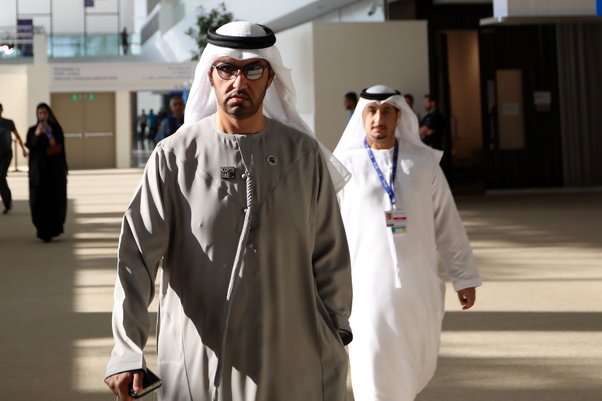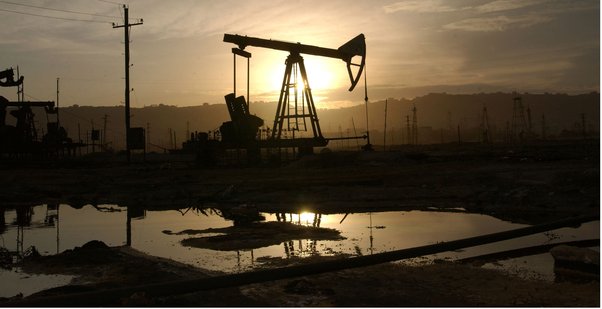Once again, fossil fuels muscled in to the world’s most important climate negotiation, sidelining critical issues about people and the future of our planet
At the end of another fraught COP, one thing is abundantly clear – the climate summit has become a playground for fossil fuel lobbyists and urgently needs restructuring to fulfil its role as a climate action hub.
Held in Baku, Azerbaijan, from 11-22 November, COP29 (dubbed the "finance COP") took place in a record-breaking year for both global heating and greenhouse gas emissions.
Despite these alarming trends, the summit highlighted deep systemic flaws, raising doubts about its capacity to address the climate crisis effectively.
In a panel hosted by Al Gore, the former US president asked Global Witness CEO Mike Davis how the fossil industry had influenced COP29.
In response, Davis highlighted the deluge of fossil fuel lobbyists in attendance hoping to water down any meaningful action that could put them out of business.
He also drew attention to issues with COP’s host countries. For two years running, we have seen petrostates transform COP into an emporium for oil and gas deals.
Does that mean that we forego the COP climate summit altogether? We think not. It remains one of the only multilateral spaces where the global community can face the climate crisis together.
Get rid of COP and international collaboration on climate action will suffer.
But, as several former UN figureheads highlighted in its first week, the summit in its current form is no longer fit for purpose. It needs a big overhaul to eject fossil fuel influence and prioritise the needs of those most vulnerable to climate change.
In Baku, it is disappointing to see that those who are most responsible for climate change were patted on the back while civil society’s attendance was profoundly hindered.
It raises the question: who gained access to speak to negotiators? Who was able to actually make a difference in this space? And what should the next steps be if we want to see people, not polluters, shape the decisions being made at COP?
Here’s our take on what happened (and what didn’t) at COP29.
Climate finance misses the mark
After much haggling between developed and developing nations, a new annual target of $300 billion was set for climate finance.
This “new collective quantified goal for climate finance” (NCQG) is meant to be instrumental for helping countries end their reliance on fossil fuels and adapt to become more resilient to our changing climate.
This is especially crucial for low-income countries, who lack sufficient resources to fund a costly energy transition and recover from the natural disasters that increasingly devastate communities and their infrastructure.
Throughout the summit, developing countries were united in their call for $1.3 trillion to be raised every year, largely by those higher income countries that have historically emitted the most climate-wrecking greenhouse gases.
But this figure faced significant pushback from developed countries until the eleventh hour.
While the $1.3 trillion figure has made it into the final text, only $300 billion of that will come from developed countries’ pledges.
How the rest will be raised remains murky – private investors may be called upon, or a proposed levy on entities like fossil fuel extraction and frequent flights.
But with details still to be ironed out, we have our reservations about how quickly the world can mobilise that $1.3 trillion target.
In the meantime, the developed world’s refusal to commit to more than $300 billion reads like a slap in the face for developing countries, with Indian negotiator Chandni Raina calling the deal a “travesty of justice” in an interview with The Guardian.
Loss and damage
Two years on from COP27’s landmark decision to create a dedicated loss and damage fund, key documents have been signed to make the fund operational next year.
That means that the Fund for Responding to Loss and Damage can begin to distribute funding to the most climate-vulnerable countries and communities from 2025, though how much there will be to hand out is – like the NQCG – in doubt.
Before COP29 started, the loss and damage fund’s total pot sat at $702 million – a fraction of the $400 billion minimum floor named by the Loss and Damage Fund, or the actual estimated $671 billion in damages that climate disasters could cost every year by 2030.
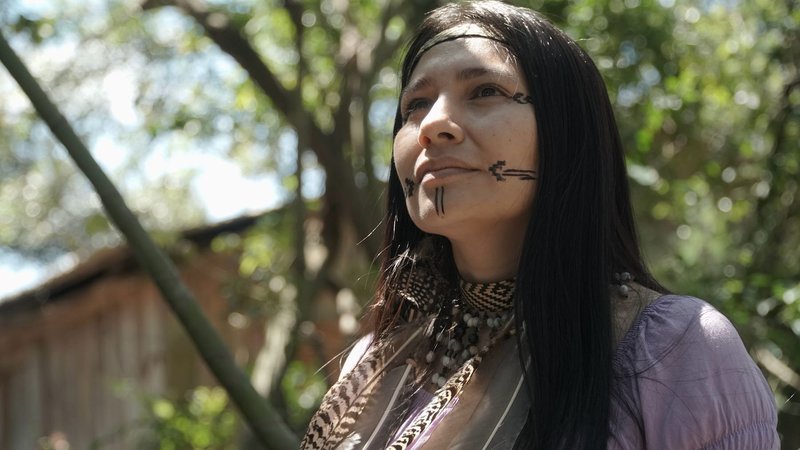
Indigenous Brazilian Luana Kaingang is one of several people we spoke to around the world who are already living with loss and damage from climate disasters. Estúdio Aluisio
By the end of the climate summit, a $19 million pledge from Sweden brought the fund up to $720 million – still a far cry from the help that developing climate-vulnerable countries so badly need.
With fundraising from developed countries continuing to be slow, we launched a campaign called "Payback Time", calling on fossil fuel companies – which are overwhelmingly responsible for the climate crisis – to pay into the loss and damage fund.
We took over the domain COP29.com, which has had over 150 high-profile endorsements from NGOs, Hollywood celebrities, politicians, and former world leaders, including actor Jude Law and former president of Ireland Mary Robinson.
The campaign was shared by thousands, seen by millions, and was even blocked in Azerbaijan.
The shadow of fossil fuels
At COP28, for the first time ever at a COP, the final text included the language of a "transition away from fossil fuels."
While this pledge left a lot to be desired, COP29 failed to mention a transition off oil and gas at all.
This was an opportunity to reaffirm last year's commitments but in the face of huge lobbying by states like Saudi Arabia, it was more of the same rather than renewed ambition.
As Ed Miliband, the UK energy minister, said during the talks, "standing still is retreat and the world will rightly judge us very harshly if this is the outcome."
Within the first few days of COP29, our undercover investigation showed the climate summit’s chief executive officer using sponsorship talks to discuss new oil and gas deals with a (fictional) fossil fuel company.
Standing still is retreat and the world will rightly judge us very harshly if this is the outcome
Contrary to the scientific consensus that we must halt all fossil fuel burning to reverse the climate crisis, secretly recorded footage shows Elnur Soltanov saying: “We will have a certain amount of oil and natural gas being produced, perhaps forever.”
This is on top of revelations last year that the UAE’s state-owned oil and gas company, ADNOC, sought up to $100 billion in new deals in the country’s year as COP host.
This is what happens when you host a climate summit in a petrostate.
Time and time again, we have seen climate action sidelined by the very figures tasked with showing climate leadership, but who end up compromised by their own business ties to the fossil fuel industry.
Where there’s a conflict of interest, climate action suffers. If COP is to ever show the same ambition that gave us the Paris Agreement again, it cannot be hosted in countries that have a vested interest in keeping oil and gas in play.
Who was at COP29 (and who wasn’t)?
This year’s COP29 painted a troubling picture of inclusion and representation at climate negotiations.
Attendance fell sharply, with 53,000 participants in the first week compared to the 85,000 at COP28.
At least 1,773 fossil fuel lobbyists were granted access to the summit – a stark reminder of the undue influence of polluting industries.
Representatives from Big Tech, agribusiness, and other high-emission sectors underscored the entrenched power imbalance within the negotiations.
The absence of prominent world leaders, including Presidents Joe Biden, Luiz Inácio Lula da Silva, Xi Jinping, Narendra Modi, and Olaf Scholz, further undercut COP29’s credibility.
Without their presence to signal political commitment and build trust among nations, the negotiations felt diminished.
Key negotiators from France and Argentina were also notably absent, leaving gaps in the decision-making process.
Against this bleak backdrop, some rays of hope emerged. Brazil, the UAE and the UK unveiled updated Nationally Determined Contributions (NDCs), reaffirming their commitment to the Paris Agreement and the UNFCCC.
These pledges, though promising, stood in stark contrast to some parties’ efforts to dilute previously agreed-upon human rights language, reflecting broader concerns about regression in critical areas of climate justice.
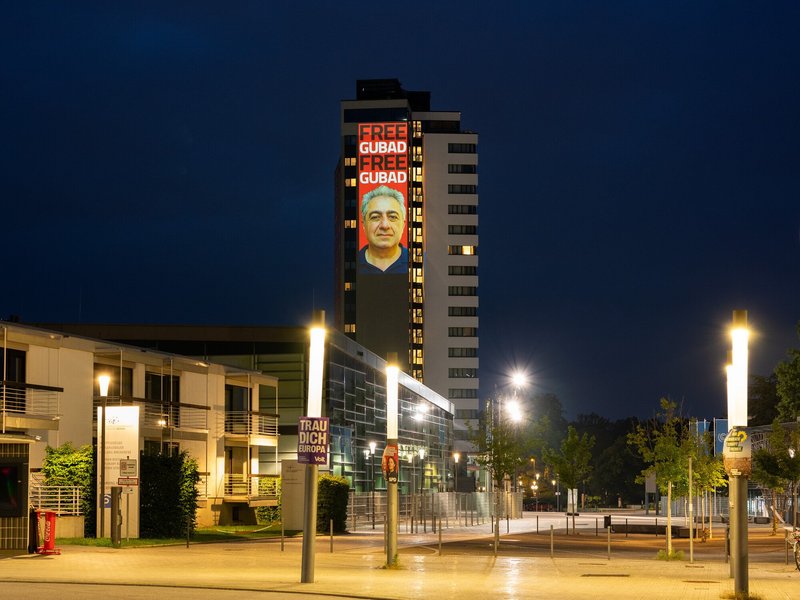
Global Witness has campaigned for the release of Gubad Ibadoghlu, an Azerbaijani academic who has criticised the oil and gas industry, for over a year. Global Witness
Civil society in Azerbaijan faces significant barriers to accessing civic space. The Azeri government, hosting the event, intensified its crackdown on civic freedoms with arbitrary arrests, politically motivated prosecutions and restrictive NGO laws.
Activists critical of the Azeri oil and gas industry have faced accusations of fraud, arbitrary detentions and legal persecution.
These systemic tactics are designed to silence independent activists and media, pushing them into precarious and often unlawful circumstances that heighten their vulnerability to retaliation.
This erosion of civic space and repression of dissent also set the tone for COP29.
The systemic targeting of Land and Environmental Defenders and activists has been a troubling feature of the last three COPs, all hosted by petrostates.
At COP29, participants faced harassment and assault from the host government, and international organisations’ efforts to spotlight these issues were met with denial.
Another of our investigations even found evidence of an online campaign designed to drown out voices that were critical of Azerbaijan’s COP presidency.
We uncovered what appears to be a network of inauthentic accounts used to amplify official COP messaging while giving the impression of widespread grassroots support for the presidency.
This highlights the urgent need to ensure the safety and meaningful inclusion of defenders and civil society in climate negotiations.
Despite the challenges, some progress was made towards amplifying marginalised voices.
Indigenous leaders, including Brazil’s Minister of Indigenous Peoples, Sônia Guajajara, called for stronger representation of Indigenous Peoples and climate-vulnerable communities in decision-making spaces at COP30.
Their efforts culminated in the launch of the Indigenous People’s Troika, an initiative led by Indigenous leaders from Brazil, Australia and the Pacific Islands, aimed at pressing negotiators to prioritise Indigenous interests.
As the world looks ahead to COP30 under Brazil’s presidency, the outcomes of COP29 serve as a reminder of both the urgency of action and the need for truly inclusive, rights-based approaches to tackling the climate crisis.
Only by addressing these systemic inequities can future COPs hope to achieve their mandate of global cooperation and progress.
What is the future of UN Climate Summits?
While it’s clear that COPs urgently require structural reforms and a reimagining of their processes, we hold onto the hope that these summits can evolve into genuine platforms for transformative action – spaces where global leaders move beyond rhetoric to place people, defenders, communities, and the planet at the heart of decision-making.
As we look ahead to COP30 in Brazil, the host nation has a pivotal opportunity to lead by example: to challenge the status quo, champion an ambitious and inclusive agenda, abandon any discussions of expanding fossil fuel production, and prove that true climate leadership is fundamentally incompatible with fossil fuel expansion.
By doing so, Brazil can set a bold precedent, prioritising justice, equity, and the voices of those most impacted by the climate crisis.
Let's turn this hope into action.
